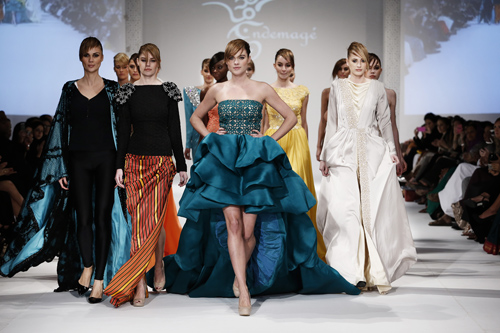
This piece was written for Egypt Independent’s final weekly print edition, which was banned from going to press. We offer you our 50th and final edition here.
Reporting for a lifestyle section in a magazine or a newspaper can be a challenge. For most publications, the lifestyle section is a window on beauty, fashion and hairdos, while others see it as a mirror reflecting society’s needs.
In a typical lifestyle piece, expensive fashion meets wealthy people shopping for expensive things.
After years of reporting for lifestyle, one realizes the power of words in making fashion novices famous, bashing restaurants, praising menus, recommending hangouts and killing jewelry collections. Being the first to eat at new restaurants is a luxury only a lifestyle reporter knows.
With all this lavishness around the corner, it is alluring to stay confined to a certain social class, promoting one posh lifestyle. Temptation is grand, but the journalist’s sense of duty and the integrity directly affiliated to the job requires a certain responsibility toward readers — the truth about street vendors, reasons behind power cuts, increases in generator sales and the domination of department stores in downtown.
“We live in a classist community,” says May Abdel Azeem, founder and managing editor of What Women Want.
Egypt is a number of societies each living in its own bubble, Abdel Azeem explains.
“What matters to a certain community wouldn’t necessarily matter to another, taking into consideration the various backgrounds and educational levels,” she adds.
Reporting for lifestyle is challenging, as one always needs to keep the balance between what is light and entertaining and serious topics, so both needs are addressed, she says.
“It all boils down to how well the writer knows his readers and how saturated those readers’ basic needs are,” she says.
For many lifestyle magazines, matters can be more money driven. Advertising is the name of the game, and articles can sometimes be specially tailored according to the ads coming in and the clients advertising with the publication.
“I was asked several times to write in favor of certain products simply because the owner advertises with us [our magazine], although I may think otherwise,” one young journalist, who has asked to remain anonymous, says.
Money versus integrity, in some cases, is another challenge lifestyle reporters may face during their careers.
“Lifestyle magazines face many challenges,” says Rola Kamel, founder of Identity Magazine.
Good journalists tend to prefer to report for newspapers, as magazines may appear less serious, Kamel says.
“As for readers, they prefer local Arabic newspapers when reading about politics,” the managing editor says.
Kamel also voices frustration about favors expected by clients who advertise with the magazine, and condemns their lack of knowledge about the readership.
“Nowadays, young readers expect short, concise, entertaining and informative pieces, which lessen the chance of bigger, analytical, serious pieces,” Kamel says.




